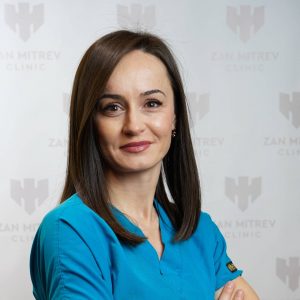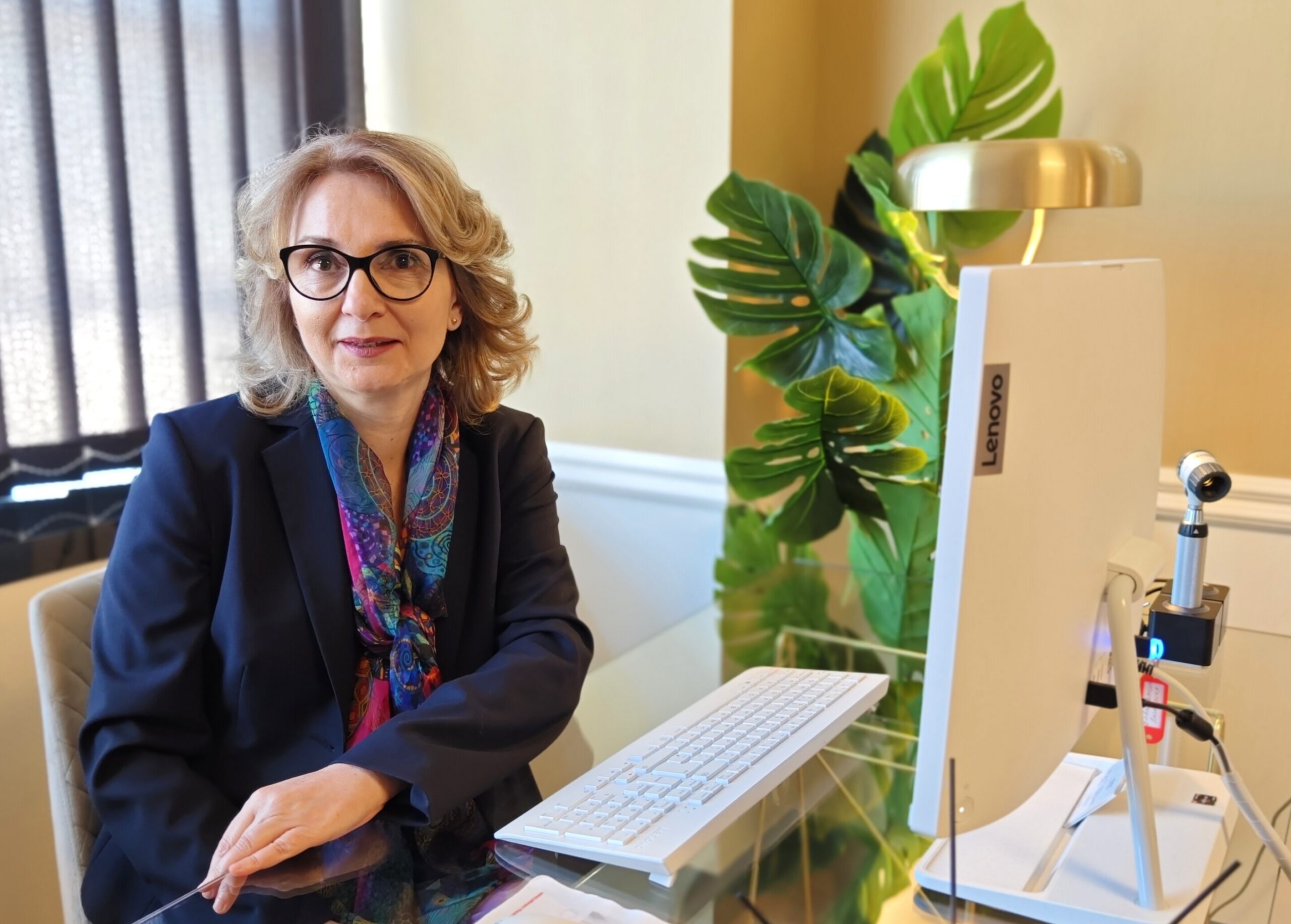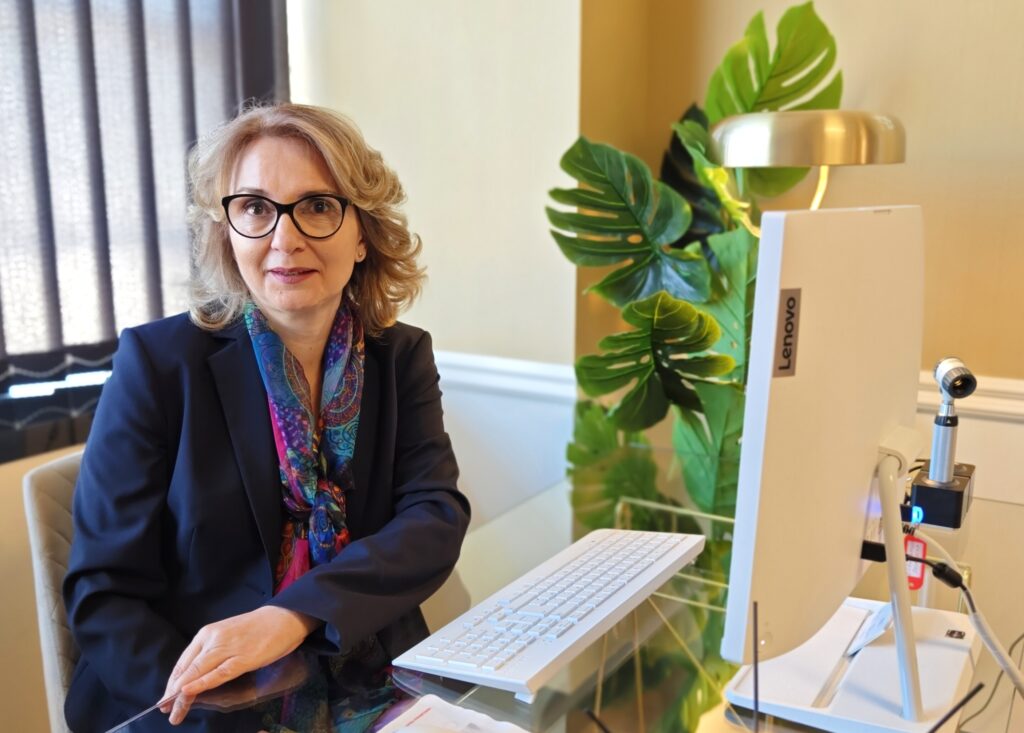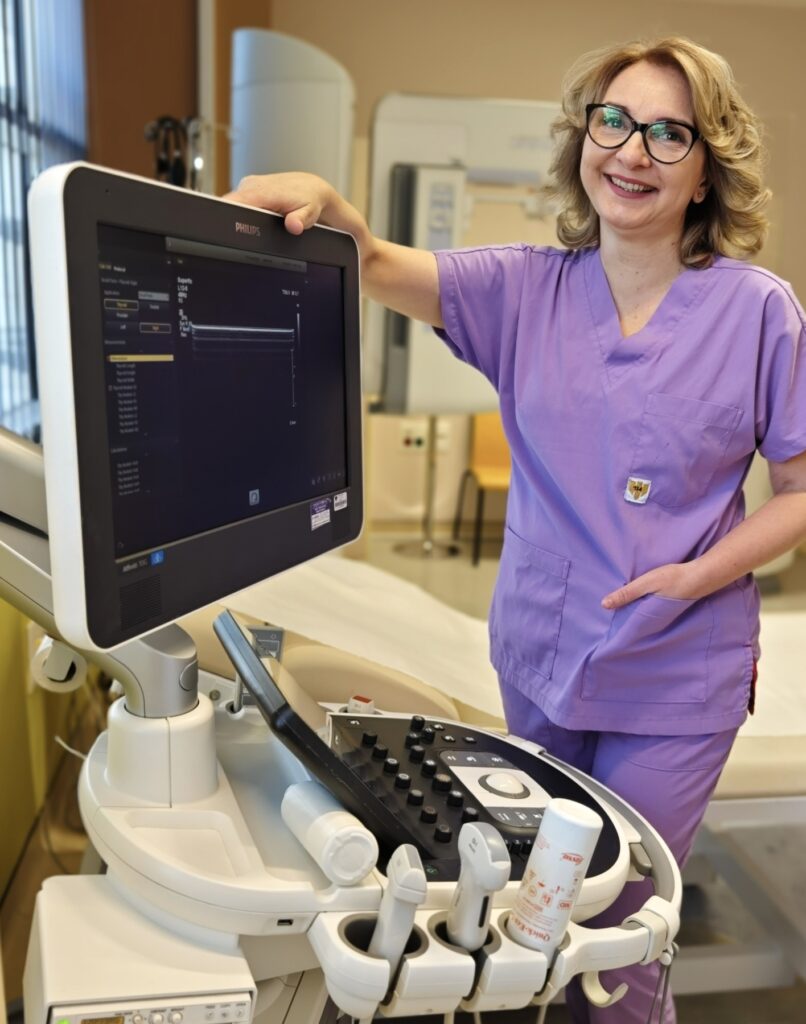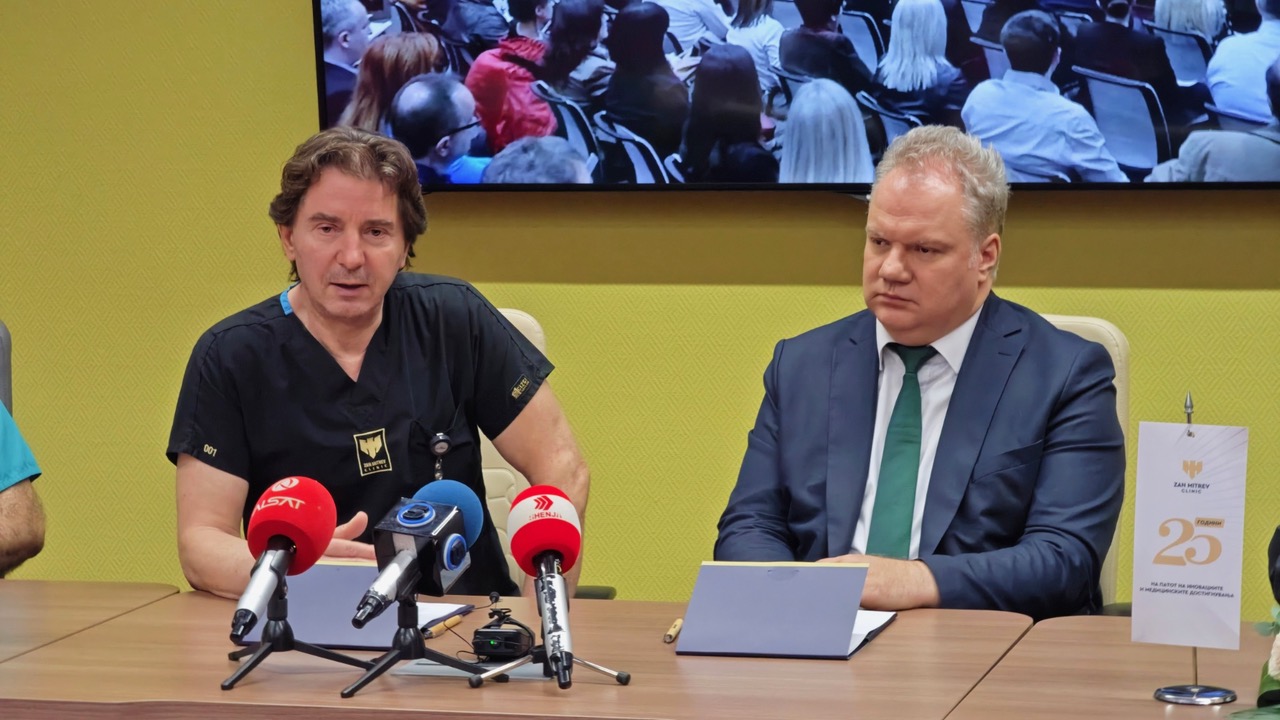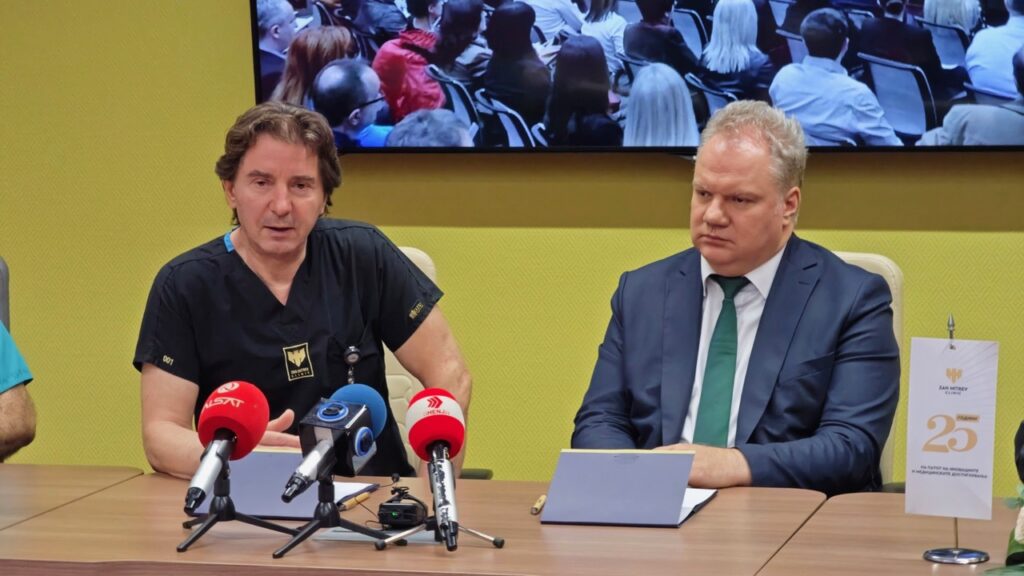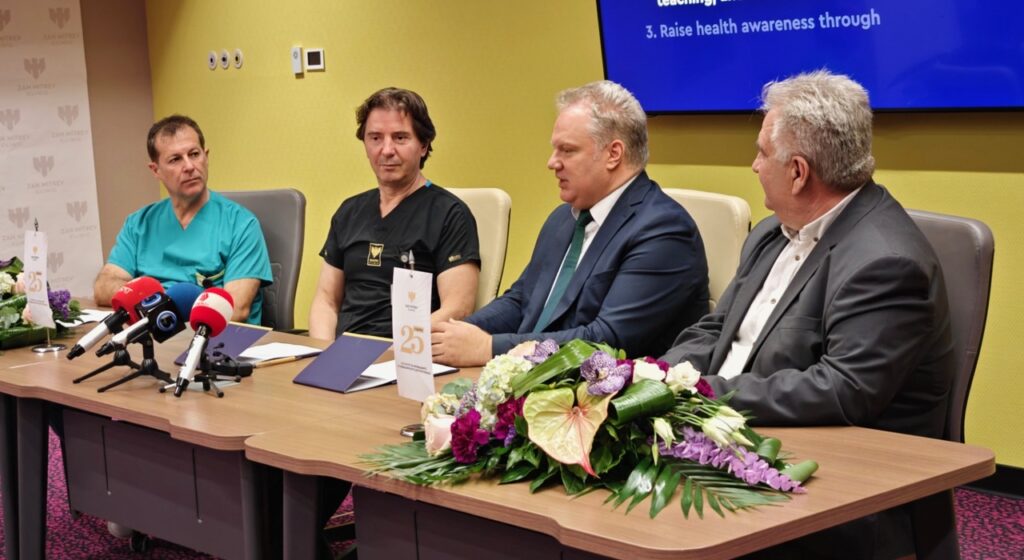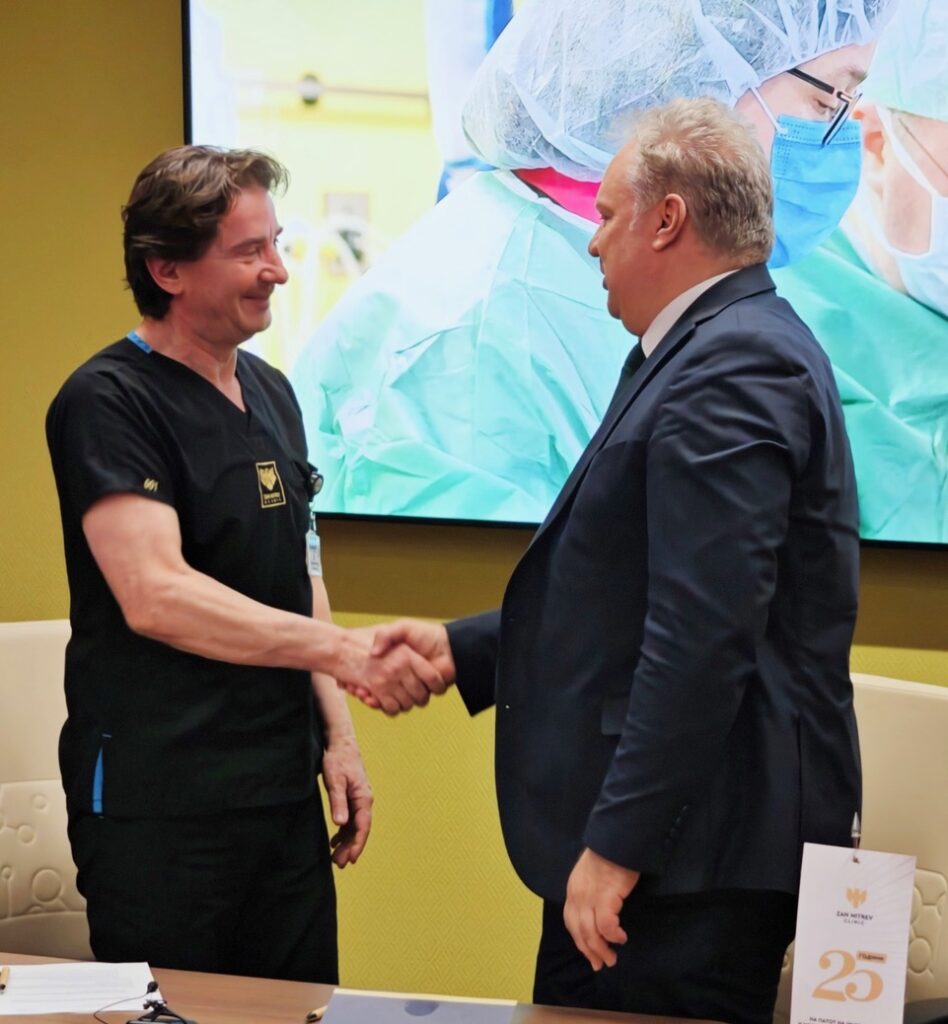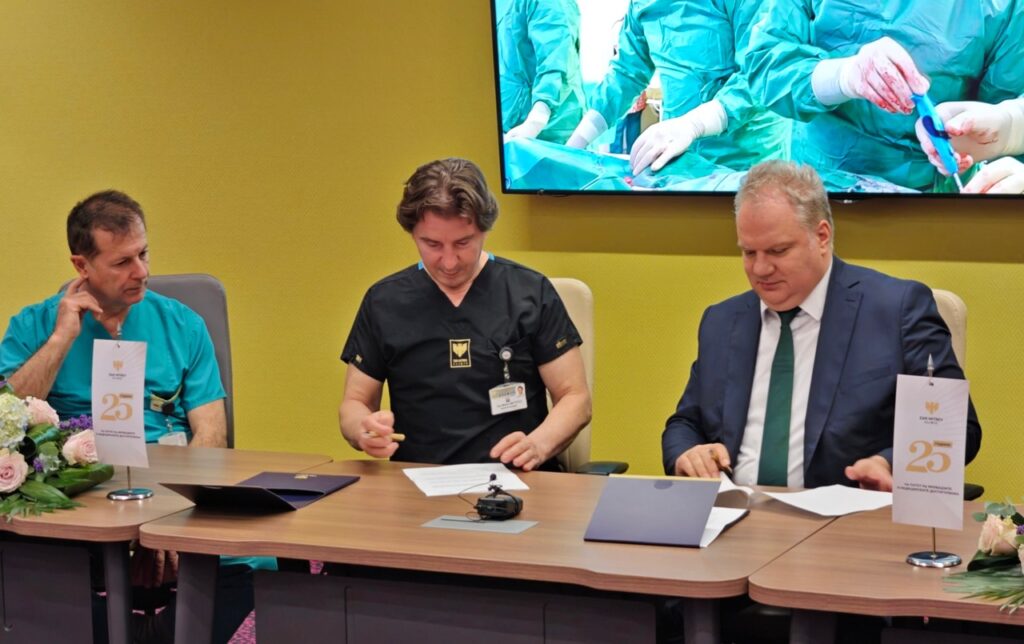Dr. Ignevska, Zan Mitrev Clinic: Through education and practice to zero tolerance for hospital infections
Dr. Katerina Ignevska is a microbiologist at the Zan Mitrev Clinic, and at the same time she also performs an exceptionally important activity as a Quality and Intrahospital Infections Control Director. With her, we talk about the standards and the regulations for protection against intrahospital infections in the clinic, about the training of the staff and the necessary mechanisms required in any healthcare institution in order to preserve the health of the population.
Can you shortly describe the method and standards applied by the clinic for protection against intrahospital infections?
Dr. Ignevska: The responsibility quality control and prevention of hospital infections function essentially means safe and efficient healthcare for every patient. When talking about patient safety, I have to emphasize that it is an enormously complex process including many measurable elements and starts as soon as the patient enters the hospital. The first step is proper identification followed by all consequent medical procedures for a precise diagnosis and an efficient treatment of the patient.
The hospital has clearly defined internal manuals and measures for prevention of the occurrence and prevention of the transmission of hospital infections, created according to the highest requirements of the prestigious JCI accreditation and they are adjusted to the requirements of the national regulations in R. N. Macedonia.
Since the very beginning, the hospital supported the concept of zero tolerance for hospital infections which, indeed, requires maximum efforts to create policies and programs, their implementation, continuous education and practical training for the entire staff. Certainly, at the end, the monitoring/control of all processes is what confirms the efficiency of the prescribed and implemented measures.
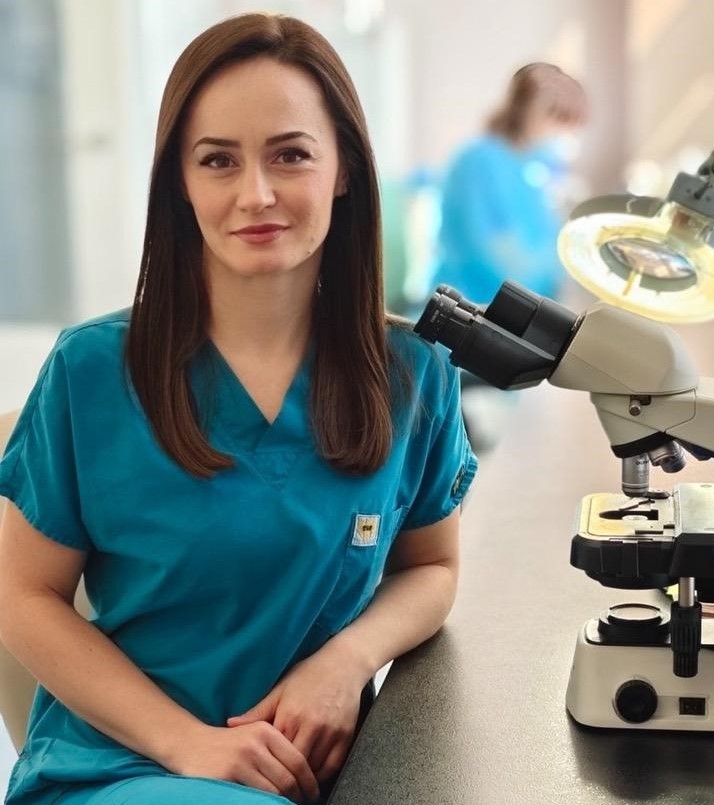
Is there a regular education of the staff, how often are sanitary examinations performed and what are the protocols for implementing measures for protection against infections?
Dr. Ignevska: The prevention of hospital infections proportionately depends on the education and preparedness of the entire staff. It concerns not only the medical staff, but also the non-medical staff and their knowledge of the transmission of infections, the importance of hygiene in the premises, appropriate use of disinfectants, proper use of personal protection equipment, hand hygiene and use of gloves, handling sharp objects, waste selection, etc. Each employee receives the initial guidelines at the employment and then is integrated in the education concept, created and provided by the Commission for Prevention of Hospital Infections.
Permanent monitoring and evaluation of the staff is key for the further proper strategic planning and optimization of the processes which will ensure good quality healthcare.
Regarding the sanitary examinations – they are performed according to the legal regulations, but internally, the hospital infections control team performs additional unannounced routine checks of the staff, of the inanimate environment and air in the hospital in order to maintain safe environment for the patients and the staff.

What is the method of isolation of patients where infections have been isolated, what are the clinic’s procedures?
Dr. Ignevska: The basic principle of work with each patient is to comply with the standard protection measures which are well known and universal. One of the stronger tools in the hospital infections prevention process is the isolation of the patients and/or their proper cohorting. In Zan Mitrev Clinic, each patient entering the inpatient part of the hospital is subjected to microbiologic procedures with epidemiological and diagnostic significance.
Until the results are received, the patients are treated as “isolated” (contact, droplet or aerogenous) which means that they are physically separated from the other patients and appropriate personal protective equipment is used when working with them. Additionally, patient safety is emphasized by the option to have negative pressure in the rooms where patients which should be aerogenously separated are situated. That creates a safe environment for all patients in the hospital, for the visitors, and the staff.
What is the role of the microbiology laboratory in the control of the intrahospital infections?
Dr. Ignevska: The team of the microbiology laboratory is available to patients at any time in order to process samples promptly and it is critical to report the results to the clinical doctors with recommendations regarding the necessary measures for prevention of infections. The multidisciplinary approach makes us unique and exceptionally efficient in establishing a microbiological diagnosis in line with the clinical diagnosis.

What are the usual reasons for the spread of intrahospital infections in healthcare institutions and is it necessary to solve the problem at national level?
Dr. Ignevska: Hospital infections are an enormous challenge that cannot be solved only on an institutional level. We cannot simply sequester the patients; they are circulating through the institutions in line with their needs and possibilities.
Our struggle as an institution would be much easier if all hospitals had a unified approach for maintaining hygiene in the hospitals, implementation of standard protection measures, microbiology laboratory services availability and timely isolation of patients, programs for rational use of antibiotics and all the other measures that comprise the quality and safety of healthcare.



